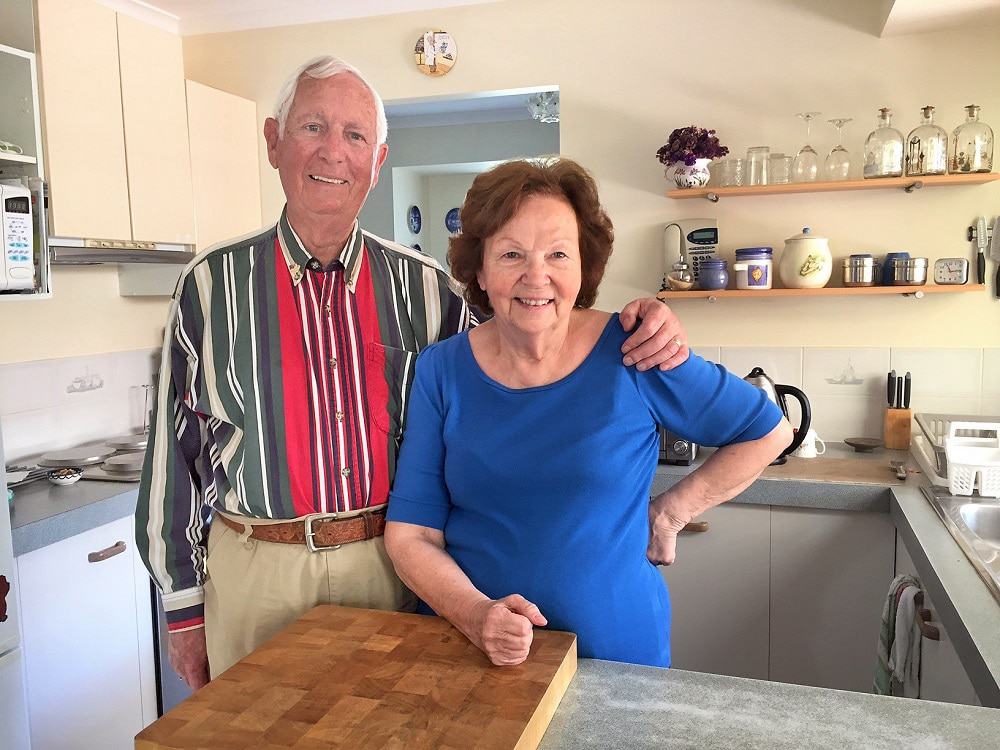Sitting around the kitchen table at Collingwood Park, Andy and Aase Brodersen must feel like worlds away from where they were married in 1962 in Copenhagan.
She remembers the German soldiers going through her parents’ apartment looking for her uncles.
Similarly, Andy leans back in his chair and recalls the war years. He was 9 when the war finished.
“You couldn’t buy anything. For five years we never tasted chicken, milk, oranges, eggs, meat,” he says.
“Everything that was grown in Denmark was taken by the Germans. In 1944, the last year (of the war), when everybody knew that the Germans were losing the war, my father bought a pig on the black market.
“If he was caught, he would have been shot. My father knew the local butcher. He said he bought a pig and asked if he would come on Friday night and slaughter it and cut it up.”
Money wasn’t an issue. His father would pay whatever it took to get that pig.
“Mr Brodersen, I don’t want any money, I just want some of the pig,” the butcher said.
Andy leans forward in his chair, and a smile plays on his lips.
“I will never forget this night: I was 7 years old at that time and I was allowed to come and watch the whole thing,” he recalls.
“The pig being slaughtered and it was really exciting. But anyway, the next day for lunch a prince of the royal family of Denmark – Prince Jacques of Bourbon-Parma – came and had lunch with us and took part of the pig back to his family.”
A bit ordinary? You might not think of the humble sandwich as gourmet because it is something you do yourself every day.
But Aase and Andy Brodersen say nothing could be further from the truth.
In their native Denmark, the open sandwich is a delicacy and something passed down through the generations.
Now a household name, the open sandwich is also known as smørrebrød: “bread and butter”, or the open-faced sandwich.
It comes in hundreds of varieties including fish, meat and veggie options and there are whole restaurants in Denmark dedicated wholly to the dish.
Aase says: “The Danes, they love having lunch together for four or five hours with many courses.”
One of her favourite childhood memories is her mother’s smoked eel smørrebrød.
“It was served cold and made with buttered rye bread, topped with a piece of lettuce then smoked eel topped with scrambled egg sprinkled with chives,” she recalled.
“It used to be my favourite until I could no longer eat fish.”
They immigrated to Australia in 1968 as they wanted to be somewhere bigger and warmer. They eventually settled in Ipswich in 2005.
Another family favourite is “Frikadelle meatballs” made with pork and veal that they serve every Sunday at St Pauls, but that is a whole other story.

